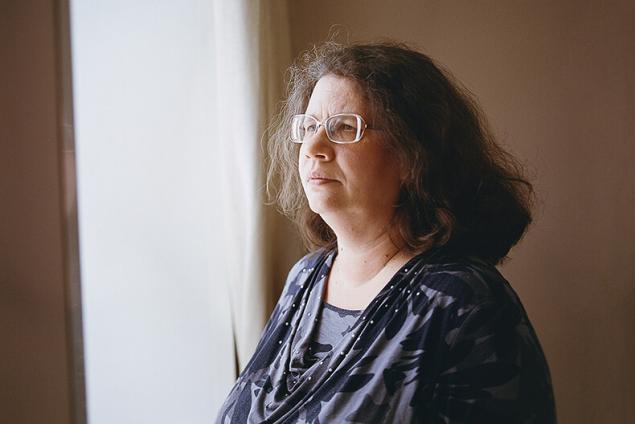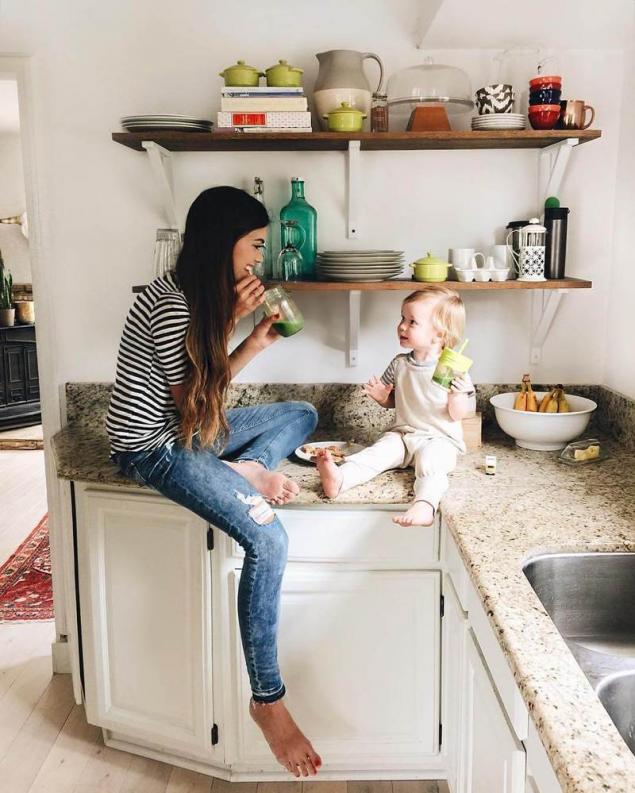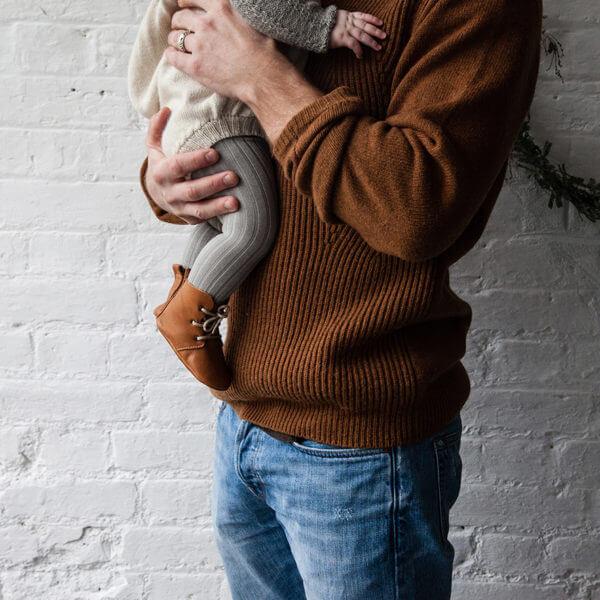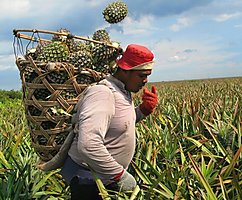Lyudmila Petranovskaya: Most theories of education.
 Bashny.Net
Bashny.Net
Psychologist Lyudmila Petranovskaya told how to get rid of the guilt of the child, he explained, is it possible to give students complete freedom and why you really need a book on parenting.
Now parents on the one hand began to pay more attention to their relationship with the child, try to stop shouting and get annoyed, to become closer, and with another — constantly feel guilty for every failure, disapproval, and past mistakes. Here is what to do with it? As the guilt to get rid of?
Yes, it is a scourge of modern time, I use the term "parent neurosis." Parents are all the time very restless and emotionally worried about everything associated with children. There are situation is clear — the child is ill or that something serious had happened, but worried-mostly due to things not bearing the threats of behavior at school much or how little time I spend with the child and so on.

As if we all have a basic lack of confidence in their right to be parents. I think that a lot of factors: there are generational factors, because it is now become young parents, people whose parents, in turn, often have been deprived of in childhood. The current grandparents once becoming a parent, acted aggression, blackmail, humiliation, because they themselves were not quite adults.
Today young mothers do not want to, and how differently — I don't know. They often have a lot of claims to their parents and exactly the same claims for itself, because as soon as you lift up the bar too high, she starts to beat you over the head. And if a parent suffers greatly because of resentment towards their parents or feelings of guilt towards their children, it would be nice to go through personal therapy.
But in General, I think there is a need to understand that all of our ideas about how to raise children, they are relative. 20 years ago thought differently, and in 20 years will be seen differently. And there are a bunch of countries and cultures where children are brought up some very differently than we do, and children there grow up, and all good.
And we look at them and think — Oh my God, these kids never do not eat soup, those a toilet on the street, but these children are 3 years old are already working. Someone we would look at and think is crazy, up to 12 years old child on the street is not allowed, fed unclear what, talk back to parents allowed. All this is quite relative.

The soup is clear, but the goal of every parent is to raise a happy person. And when you're happy, it doesn't matter on the street you have a toilet or do you live in a three-storey house, are you comfortable with yourself.
Oh, well, this is also a trap of the modern parent: it is necessary to make so that the child grew happy. Yes, as this can generally be laid? Imagine that someone spent all of their resources in order to keep you happy, and you have the autumn Blues or unrequited love.
And you feel guilty about that at the moment you are unhappy. That is, not only do you feel bad now – but you get the bastard, brought the loved ones. How can you put on the fact that the child was happy? It may be teenage depression, separation from loved ones, lost a friend, a personal crisis, but you never know!
And how the concept of containerbase? It is precisely in order to teach the child in the least traumatic to experience, conventionally, unrequited love and other misfortunes.
No, containerevent not to less to worry about. It is not that the child was so positive prick — haha, all dead, and I do not care, because my Mama loved. The essence of containerbase not to upset, but to people in the time of the tragedy, realizing that he is not able to cope with their feelings, would go for help not to the bottle of vodka, and others and would receive support from them.
It is clear that the adult human large stock of samakonasana, but if the situation is really serious, healthy people is a living people who can feel for him, not for surrogates of shopping, money, vodka. Containerevent need in order to experience more deeply and fully, and not hide from the feelings, not to stifle them for fear that you will not be able to cope.
Well, here if to go back to modern advice of "proper" parenthood: now nearly all popular psychologists advise to give the child as much choice, not to force to learn, to give the opportunity to feel the interest. Can somehow with this freedom go too far?
I don't think there's a General recipe. And force and force — everything has its price. If you are forced, then, firstly, it's tedious, takes time and effort, and secondly, you are depriving the child opportunities to make choices, and, in addition, spoil your relationship with him. If you are not forced, the choice can be overwhelming for a child, to cause him anxiety.
There is a risk that problems will accumulate, and the child will then complain, why, they say, he was not forced to finish my studies and he received the best education. The child's emerging subjectivity, it is still not entirely subjective and is not not completely subjective. With infants we choice questions are not set — it is clear that this kid is not yet a subject, and the greatest freedom that we can give is to not feed by the clock and on demand.
But we want to 18 years the child has become completely subjective — could make decisions to choose a career, a spouse, a way to live. That is, all the time between infancy and 18 years must be spent on the formation of subjectivity. But the child has no forehead sensor that would indicate the state of his readiness to take decisions — today he is ready by 37 percent, but 62. Therefore, the task of every parent is to understand how a child can make decisions now.

It's complicated. The criteria here are vague and we always get it wrong. One seeming smaller than he really is, they control and patronize, where it is not necessary. Others give him too much freedom and responsibility — and wrong in the other direction, the child feels anxious and abandoned. There is no way to calculate this willingness to decisions on the individual child.
Here we need the constant involvement and flexibility of maneuver — if you see that abandoned child and he was not greatly subsided, fell behind in school, got confused, then you need to add very little presence, and to restrict the freedom of choice. If you see that your control has got and he can handle himself – to retreat, to give more freedom. All the time to make mistakes and correct mistakes – otherwise nothing.
Here's how to live without guilt when the parent is such a huge responsibility? Gave freedom — the child became anxious, annoyed — adult daughter suffers from uncertainty, forced to learn — to spoil relations. Here everywhere you turn, everywhere harm from parents!
The world through it's long passed and he relaxed. In the West it was a trick of the 70-ies — everything in the world was explained by education, from autism to hyperactivity and asthma. Delight neophytes in developmental psychology. Such an explanatory scheme is very powerful because this way you can explain to the masses everything that you want.
To explain the maternal education similarly, any manifestation of the person. In any relationship there is always someone perelavlivaet, not always sensitive or something. Because every parent is always something for which to reproach himself, any schools the child can be explained by the fact that you nederdel or peredel. These schemes have incredible magic, they are always easy to believe. But how it works for sure — no one knows.
Such allegations were credible, we need studies that hold is simply impossible. We can't take the same child and to make so that at first he lived all his life with his mother, who was annoyed and screamed, and then put it back in the infancy and give him another mother.
Compare it with another child whose life was exactly the same, only mom didn't yell, either. It should be a sampling of hundreds of thousands. And still go to separate: on this, the mother screamed and because he, for example, hyperactive, or he was hyperactive, and because the mother was exhausted and screaming.
It is important to remember that a large part of what has been said about the influence of parents on children, including what I say, this is speculation and generalization. We have no reliable studies. They probably ever will, because, for example, now more and more studies involve direct observation of brain activity.
Perhaps as soon as the ability to track the reaction of the person directly, we know more and understand about the cause-and-effect relationships in education. But while most of the theories of education and development is speculation. This does not mean that it is useless and does not work – this means that the attitude of parents to the parenting books should be strictly consumer.
If I'm reading this book and I want to go hug and kiss your child, I want to change so it fits me. If I after this book I feel guilty and terrible and I want to hang myself, it does not suit me. Because, in my opinion, everything that makes the parent guilty and miserable, harmful to the child.
And anything that makes parents more relaxed and confident for a child well. It is important after reading books on parenting experience warmth and tenderness to the child, not the alarm in the genre of "how not to let it rein" or "how would not make him neurotic".

By the way, and the truth is, that in one and the same family grow completely different children. For example, one student, and the other sits at the computer all day. It turns out that not everything is due to the behavior of parents.
For example, Yes, children grew up in the same family, but when first born, the parents were relaxed and happy, and when there were money problems. There are always different context. And one and the same event always affects different children in different ways.
Plus children in one family, often unconsciously, to distribute between themselves the functions: I'll be mother's joy and I'm proud, and I will do so that the parents can not relax. Even twins can be very different — not all dependent on the parents. We are real people, we have freedom of will, personal characteristics, we are not robots that can lay the same a certain algorithm.
Well, but there are also some program-at least, that needs to be done, conventionally, "a good parent"? It is clear that hitting a child is unacceptable. But something not so obvious?
All that is required of the parent is to live your life and be attentive to your child. This does not mean that you need to do whatever he wants and to always be there for him. You just need to always keep the communication channel open. If you see that the child needs your help, you have to be ready to drop everything and be with him.
Really need kindergarten?20 phrases that are NOT supposed to tell the mother of his adult daughter
But to enable this mode in really serious moments. Imagine what it would be if we satisfied all the needs of your child, making sure that he never suffered? Remember, in the cartoon "Wall-e": a spaceship-health, which placed people, this is such a perfect mother that protect them from the slightest trouble.
As a result, the people there are turned into fat bubbles, unable even to walk and chew food. This is hardly what we would wish. In General, the main thing you should always remember that children are given to us not in prison, and for joy — that's the whole point.published
Author: Lyudmila Petranovskaya
Source: ezhikezhik.ru/reviews/bol-sinstvo-teorij-vospitania-eto-spekulacii
Now parents on the one hand began to pay more attention to their relationship with the child, try to stop shouting and get annoyed, to become closer, and with another — constantly feel guilty for every failure, disapproval, and past mistakes. Here is what to do with it? As the guilt to get rid of?
Yes, it is a scourge of modern time, I use the term "parent neurosis." Parents are all the time very restless and emotionally worried about everything associated with children. There are situation is clear — the child is ill or that something serious had happened, but worried-mostly due to things not bearing the threats of behavior at school much or how little time I spend with the child and so on.

As if we all have a basic lack of confidence in their right to be parents. I think that a lot of factors: there are generational factors, because it is now become young parents, people whose parents, in turn, often have been deprived of in childhood. The current grandparents once becoming a parent, acted aggression, blackmail, humiliation, because they themselves were not quite adults.
Today young mothers do not want to, and how differently — I don't know. They often have a lot of claims to their parents and exactly the same claims for itself, because as soon as you lift up the bar too high, she starts to beat you over the head. And if a parent suffers greatly because of resentment towards their parents or feelings of guilt towards their children, it would be nice to go through personal therapy.
But in General, I think there is a need to understand that all of our ideas about how to raise children, they are relative. 20 years ago thought differently, and in 20 years will be seen differently. And there are a bunch of countries and cultures where children are brought up some very differently than we do, and children there grow up, and all good.
And we look at them and think — Oh my God, these kids never do not eat soup, those a toilet on the street, but these children are 3 years old are already working. Someone we would look at and think is crazy, up to 12 years old child on the street is not allowed, fed unclear what, talk back to parents allowed. All this is quite relative.

The soup is clear, but the goal of every parent is to raise a happy person. And when you're happy, it doesn't matter on the street you have a toilet or do you live in a three-storey house, are you comfortable with yourself.
Oh, well, this is also a trap of the modern parent: it is necessary to make so that the child grew happy. Yes, as this can generally be laid? Imagine that someone spent all of their resources in order to keep you happy, and you have the autumn Blues or unrequited love.
And you feel guilty about that at the moment you are unhappy. That is, not only do you feel bad now – but you get the bastard, brought the loved ones. How can you put on the fact that the child was happy? It may be teenage depression, separation from loved ones, lost a friend, a personal crisis, but you never know!
And how the concept of containerbase? It is precisely in order to teach the child in the least traumatic to experience, conventionally, unrequited love and other misfortunes.
No, containerevent not to less to worry about. It is not that the child was so positive prick — haha, all dead, and I do not care, because my Mama loved. The essence of containerbase not to upset, but to people in the time of the tragedy, realizing that he is not able to cope with their feelings, would go for help not to the bottle of vodka, and others and would receive support from them.
It is clear that the adult human large stock of samakonasana, but if the situation is really serious, healthy people is a living people who can feel for him, not for surrogates of shopping, money, vodka. Containerevent need in order to experience more deeply and fully, and not hide from the feelings, not to stifle them for fear that you will not be able to cope.
Well, here if to go back to modern advice of "proper" parenthood: now nearly all popular psychologists advise to give the child as much choice, not to force to learn, to give the opportunity to feel the interest. Can somehow with this freedom go too far?
I don't think there's a General recipe. And force and force — everything has its price. If you are forced, then, firstly, it's tedious, takes time and effort, and secondly, you are depriving the child opportunities to make choices, and, in addition, spoil your relationship with him. If you are not forced, the choice can be overwhelming for a child, to cause him anxiety.
There is a risk that problems will accumulate, and the child will then complain, why, they say, he was not forced to finish my studies and he received the best education. The child's emerging subjectivity, it is still not entirely subjective and is not not completely subjective. With infants we choice questions are not set — it is clear that this kid is not yet a subject, and the greatest freedom that we can give is to not feed by the clock and on demand.
But we want to 18 years the child has become completely subjective — could make decisions to choose a career, a spouse, a way to live. That is, all the time between infancy and 18 years must be spent on the formation of subjectivity. But the child has no forehead sensor that would indicate the state of his readiness to take decisions — today he is ready by 37 percent, but 62. Therefore, the task of every parent is to understand how a child can make decisions now.

It's complicated. The criteria here are vague and we always get it wrong. One seeming smaller than he really is, they control and patronize, where it is not necessary. Others give him too much freedom and responsibility — and wrong in the other direction, the child feels anxious and abandoned. There is no way to calculate this willingness to decisions on the individual child.
Here we need the constant involvement and flexibility of maneuver — if you see that abandoned child and he was not greatly subsided, fell behind in school, got confused, then you need to add very little presence, and to restrict the freedom of choice. If you see that your control has got and he can handle himself – to retreat, to give more freedom. All the time to make mistakes and correct mistakes – otherwise nothing.
Here's how to live without guilt when the parent is such a huge responsibility? Gave freedom — the child became anxious, annoyed — adult daughter suffers from uncertainty, forced to learn — to spoil relations. Here everywhere you turn, everywhere harm from parents!
The world through it's long passed and he relaxed. In the West it was a trick of the 70-ies — everything in the world was explained by education, from autism to hyperactivity and asthma. Delight neophytes in developmental psychology. Such an explanatory scheme is very powerful because this way you can explain to the masses everything that you want.
To explain the maternal education similarly, any manifestation of the person. In any relationship there is always someone perelavlivaet, not always sensitive or something. Because every parent is always something for which to reproach himself, any schools the child can be explained by the fact that you nederdel or peredel. These schemes have incredible magic, they are always easy to believe. But how it works for sure — no one knows.
Such allegations were credible, we need studies that hold is simply impossible. We can't take the same child and to make so that at first he lived all his life with his mother, who was annoyed and screamed, and then put it back in the infancy and give him another mother.
Compare it with another child whose life was exactly the same, only mom didn't yell, either. It should be a sampling of hundreds of thousands. And still go to separate: on this, the mother screamed and because he, for example, hyperactive, or he was hyperactive, and because the mother was exhausted and screaming.
It is important to remember that a large part of what has been said about the influence of parents on children, including what I say, this is speculation and generalization. We have no reliable studies. They probably ever will, because, for example, now more and more studies involve direct observation of brain activity.
Perhaps as soon as the ability to track the reaction of the person directly, we know more and understand about the cause-and-effect relationships in education. But while most of the theories of education and development is speculation. This does not mean that it is useless and does not work – this means that the attitude of parents to the parenting books should be strictly consumer.
If I'm reading this book and I want to go hug and kiss your child, I want to change so it fits me. If I after this book I feel guilty and terrible and I want to hang myself, it does not suit me. Because, in my opinion, everything that makes the parent guilty and miserable, harmful to the child.
And anything that makes parents more relaxed and confident for a child well. It is important after reading books on parenting experience warmth and tenderness to the child, not the alarm in the genre of "how not to let it rein" or "how would not make him neurotic".

By the way, and the truth is, that in one and the same family grow completely different children. For example, one student, and the other sits at the computer all day. It turns out that not everything is due to the behavior of parents.
For example, Yes, children grew up in the same family, but when first born, the parents were relaxed and happy, and when there were money problems. There are always different context. And one and the same event always affects different children in different ways.
Plus children in one family, often unconsciously, to distribute between themselves the functions: I'll be mother's joy and I'm proud, and I will do so that the parents can not relax. Even twins can be very different — not all dependent on the parents. We are real people, we have freedom of will, personal characteristics, we are not robots that can lay the same a certain algorithm.
Well, but there are also some program-at least, that needs to be done, conventionally, "a good parent"? It is clear that hitting a child is unacceptable. But something not so obvious?
All that is required of the parent is to live your life and be attentive to your child. This does not mean that you need to do whatever he wants and to always be there for him. You just need to always keep the communication channel open. If you see that the child needs your help, you have to be ready to drop everything and be with him.
Really need kindergarten?20 phrases that are NOT supposed to tell the mother of his adult daughter
But to enable this mode in really serious moments. Imagine what it would be if we satisfied all the needs of your child, making sure that he never suffered? Remember, in the cartoon "Wall-e": a spaceship-health, which placed people, this is such a perfect mother that protect them from the slightest trouble.
As a result, the people there are turned into fat bubbles, unable even to walk and chew food. This is hardly what we would wish. In General, the main thing you should always remember that children are given to us not in prison, and for joy — that's the whole point.published
Author: Lyudmila Petranovskaya
Source: ezhikezhik.ru/reviews/bol-sinstvo-teorij-vospitania-eto-spekulacii
Tags
See also
"To teach means to praise": a mother of three children bad grades, and unhappy teachers
Shalva Amonashvili: education Law — it's now or never
10 psychological "gifts" to children from parents

















